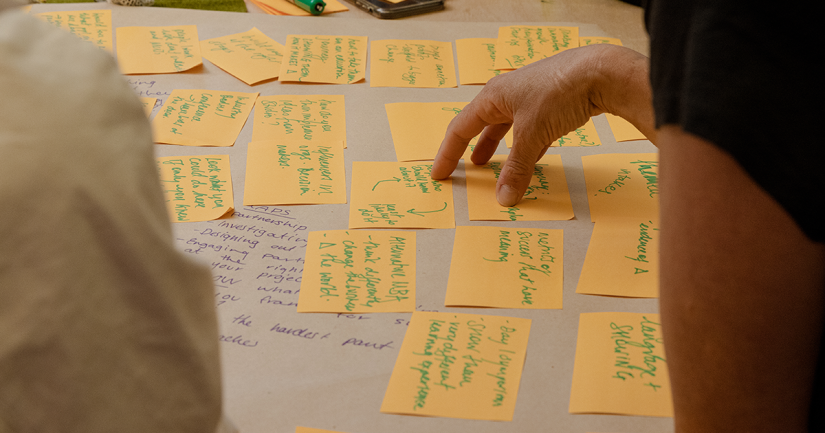With over 15 years of experience leading teams and portfolios managing strategic digital transformation programs, Andrew Lawrence turned to ‘Futures Thinking’ to elevate his professional practice.

“I was looking for strategy tools and ways to challenge assumptions and thinking. In my current role as Strategic Program Director in NSW Government, we’re working on quite established projects, which have hit a point where they need new thinking to transition from delivering foundations to scaling to the next stage,” explained Andrew.
“I find myself drawing on this new way of thinking whenever new issues and risks arise, and in the approach I take with my team to defining and scoping new initiatives.”
Discussing the importance of this skill set, TD School Senior Lecturer, Dr. Susanne Pratt, said, “In the middle of global upheavals, uncertainty and rapidly changing contexts, futures-thinking is a critical and creative practice for systems change and purposeful action. It helps you to anticipate, imagine and create innovative pathways to preferable futures; enhance capabilities to thrive in uncertainty, and explore possible long-term impacts to act responsibly.”
Delivered over six weeks, the ‘Futures Thinking’ microcredential is designed for learners to develop long-term thinking and reflexivity, including the capacity to question assumptions and imagine alternatives.
“The way the course is structured, guiding you through the six stages of futuring – scoping, scanning, sensemaking, storytelling, strategizing and scaling – really simplifies the process, while also providing you with the methods to use within each stage,” noted Andrew.
“I’ve been applying the six stages as an overall structure of the end-to-end process in new programs we’re planning. Recently, I’ve used the approach for the development of a new digital transformation strategy for a group of services that rely on paper and offline processes. In designing our plan to build the strategy, we started with the six stages of futures thinking, and then mapped a hybrid of futures-thinking methods and other project activities we needed to use to define and validate the strategy.”
Another of the microcredential’s aims is for learners to understand ways in which to support futures thinking capabilities in their own ecosystems. This includes encouraging participatory approaches for ensuring meaningful impact and communicating the value of these approaches and insights.
In the context of business transformation, futures thinking extends beyond strategic foresight and planning which typically take a risk mitigation approach, relying on historical data analysis to do so. Instead, futures thinking identifies a spectrum of scenarios, helping to shape strategies and innovative policies.
“Rather than solely focusing on risk and attempting to predict threats, futures-thinking helps people to make sense of changing contexts and possible and probable futures. It emphasises the imagination alongside participatory tools and practices to support data-informed cycles of action and learning to bring about preferable futures,” explained Dr Pratt.
Reflecting further on how he has applied Futures Thinking in his professional practice, Andrew shared, “I’m using some of the methodologies and templates as facilitation tools to drive alignment in participatory forums. I’ve learnt some new go-to tools including the Futures Thinking Triangle to rapidly scope a problem and look at the risks and opportunities as well as the Three Horizons to create visual maps outlining the transitions and catalysts for change to realise futures visions.
I’ve also used the Causal Layer Analysis method, which has been helpful to break down myths and worldviews that we need to appreciate when approaching new ideas, and the perspectives of people that they will affect.”
For Andrew, the Futures Thinking microcredential has provided new approaches to structuring the development of strategic initiatives, as well as methods to facilitate participatory activities.
“This microcredential gives you the tools to approach complex problems and social dynamics that require alignment and a shared sense of future vision – I’d highly recommend it to anyone working in change-management, strategy or digital transformation,” he concluded.
Learn more about the Futures Thinking microcredentials.
Browse all transdisciplinary microcredential courses.

